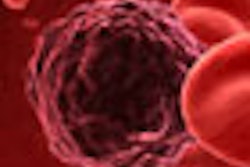Scientists from The Scripps Research Institute have been awarded a five-year, $8.4 million grant from the National Institute on Drug Abuse of the National Institutes of Health (NIH) to develop new compounds to help prevent relapse in smokers who are trying to quit.
Scripps Research associate professor Paul Kenny, PhD, is the program director and principal investigator for the study.
The study is focused on a receptor for a specific neuropeptide that, when blocked, significantly decreases the desire for nicotine in animal models. The neuropeptide, known as hypocretin-1 or orexin A, initiates a key signaling cascade that maintains tobacco addiction in human smokers.
In a 2008 study, Kenny and colleagues showed that blocking hypocretin-1 receptors not only decreased nicotine use in animal models, but also abolished the stimulatory effects of nicotine on brain reward circuits. These results demonstrated that hypocretin-1 plays a major role in driving the desire for more nicotine.



















